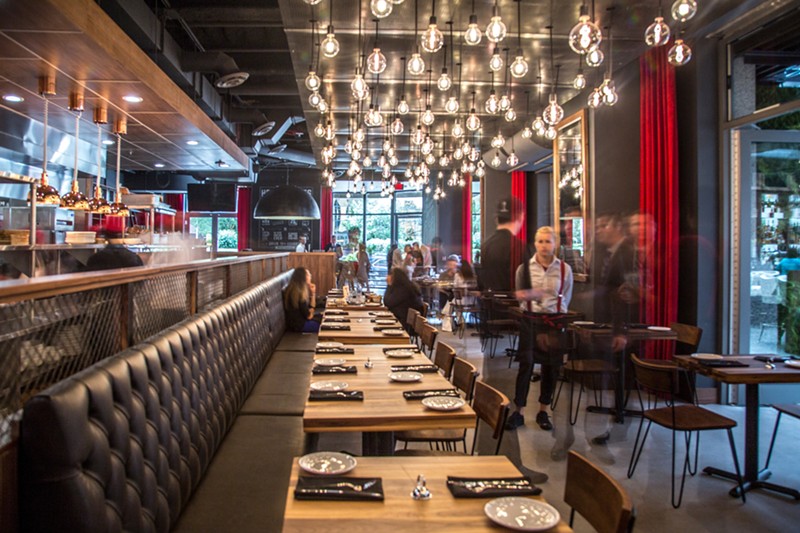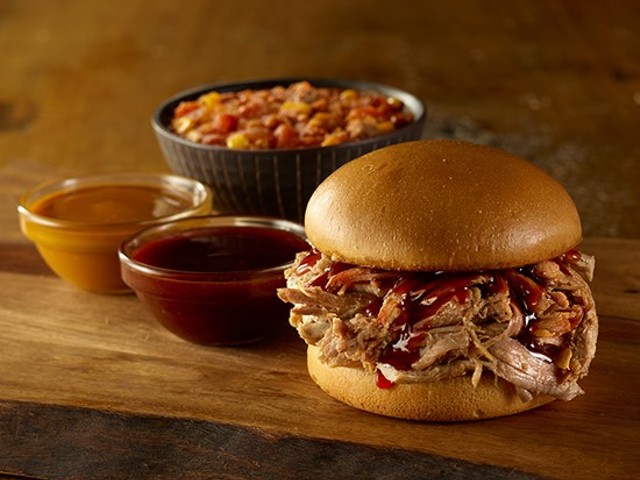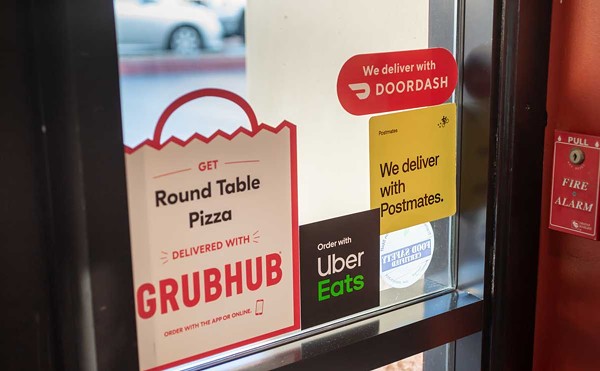
If you've recently visited a Michigan hotel or restaurant, be it a sit-down spot or fast food joint, and you've had to wait longer than usual, or have been turned away due to shortened hours of operation there's a reason for that: inadequate staffing.
Surprised? Neither are we.
The Michigan Restaurant & Lodging Association (MRLA) recently released the results of a statewide survey, which revealed that nine out of 10 Michigan restaurants and 97% of hotels in the state are not operating with adequate staff, forcing more than 85% of full-service restaurants to close early or spontaneously due to not having enough people to keep things up and running. Many restaurants have reported staff quitting mid-shift.
"More than four out of five respondents are operating at least 10% below adequate staffing levels and a staggering 29 percent in the industry are operating more than 30 percent below what is needed to meet consumer demand," the MRLA states.
The survey also found that the staffing shortage has impacted bars and nightclubs, 67% of which report operating while inadequatly staffed.
"Restaurant and hotel operators are trying to meet consumer demand that exceeds 2019 with 100,000 fewer workers and skyrocketing labor and commodity prices," said Justin Winslow, MRLA president, and CEO. "Workers are exhausted and profit margins are thin for many despite the resurgent demand.”
So, is it that people don't want to work, or is it that the pandemic has forced a national workforce reckoning, which has people in vulnerable industries reevaluating risk, reward, self-worth, and what they consider to be a livable wage? Throughout 2020, Michiganders took in unemployment benefits, and, for many in the hospitality industry, being unemployed was simply more profitable than working. The increase in unemployment pay, however, is expected to expire on Sept. 4.
Meanwhile, since the start of the pandemic, more than 634,000 people in the U.S. have died due to COVID-19, which some say is a grim yet valid cause to consider when analyzing the national worker shortage.
"Most of these complaints seem to be coming from franchised restaurants." Jacobin reports. "Why? Well, it’s not complicated. Service workers didn’t decide one day to stop working — rather huge numbers of them cannot work anymore. Because they’ve died of coronavirus."
The survey findings coincide with a major milestone for the U.S. labor force. As of this week, the average pay for restaurant and grocery store workers has reached more than $15 an hour. Major retail chains like Target, CVS, Best Buy, Costco, and others are paving the way with increased hourly wages, which are expected to become permanent as a result of the pandemic. Franchised restaurants like McDonald's, Taco Bell, and Chipotle are advertising a range of higher wages, some up to $17 an hour with a signing bonus, more substantial benefits, and, in some cases, applicants are paid simply to show up to an interview. And at Target, workers are now eligible to have 100% of their college tuition covered by their employer.
However, the federal minimum wage remains just $7.25 an hour.
For added context, a report published last month found that "people working minimum wage jobs full time cannot afford a two-bedroom apartment in any state in the country." It also found that in 93% of U.S. counties, those same workers cannot afford "a modest one-bedroom."
There is some good news, though, as nearly 80% of U.S. workers now earn at least $15 an hour, up from just 60% in 2014. But economists urge caution when celebrating higher average wages, which they suggest are not the same as a federally mandated $15 an hour minimum wage.
“It wouldn’t be fair to call $15 an hour the new minimum, but I think it’s a guiding star wage," Indeed Hiring Lab's economic research director Nick Bunker told The Washington Post. "It’s a baseline wage that folks compare offers to.”
A June survey conducted by labor advocacy group One Fair Wage found that 53% of all restaurant workers are considering quitting their job, more than 76% citing low wages and tips as the reason for wanting to leave. Harassment towards hospitality workers has also increased during the pandemic, which has had a direct impact on a reported decrease in tips.
In February, One Fair Wage found that nearly 90% of Black restaurant employees report that their tips declined by half or more since the health crisis began. By comparison, only 78% of restaurant employees of other races reported such a steep decline. In a 2020 survey, One Fair Wage found that restaurant servers were not only being tipped poorly, but they were being harassed for enforcing social distancing and mask-wearing.
“We were really shocked with how horrific the situation truly is,” president of One Fair Wage, Saru Jayaraman said in an interview with Weekend Edition. “But I think the most horrific thing, that honestly all of us who are involved in the study were all blown away by, was the huge increase in hostility and sexual harassment.”
The study, titled “Take off your mask so I know how much to tip you,” found that more than 80% of food industry workers have seen a decline in tips, while 40% claim sexual harassment from customers has increased.
In some situations, during a time where mask mandates were enforced by the state, food service workers endured “maskual harassment,” a disgusting phenomenon in which restaurant-goers request the server remove their mask to gauge how much they should be tipped — which, if they comply, puts them at an increased risk of contracting the virus.
So, what's next?
MRLA president Winslow reminds of the government's shortcomings in supporting the essential workers who are impacted not only by the worker shortage but by insufficient funding, resources, and hourly pay.
"It is important to remember that most restaurants and hotels did not receive federal or state aid during the darkest days of the pandemic," he says.
The MRLA, meanwhile, has continued to "call upon the Michigan legislature and Gov. Gretchen Whitmer to come together on a deal in September that prioritizes the hospitality industry in yet-to-be-appropriated federal relief dollars."
As a result of the pandemic, it is estimated that 1 in 6 Michigan restaurants have permanently closed.
Stay connected with Detroit Metro Times. Subscribe to our newsletters, and follow us on Google News, Apple News, Twitter, Facebook, Instagram, or Reddit.





